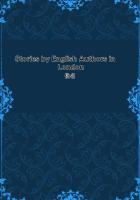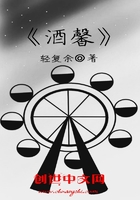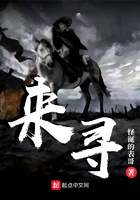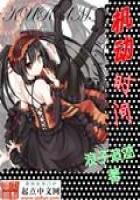ANd MeMORY knows this;twenty years later memory is still to believe, On this day I became a manThe clean, spartan room was redolent of sunday。 In the windows the clean, darned curtains stirred faintly in a breeze smelling of turned earth and crabapple。Upon the yellow imitation oak melodeon with its pedals padded with pieces of frayed and outworn carpet sat a fruit jar flled with larkspur。The boy sat in a straight chair beside the table on which was a nickel lamp and an enormous bible with brass clasps and hinges and a brass lock。He wore a clean white shirt without a collar。His trousers were dark, harsh, and new。His shoes had been polished recently and clumsily, as a boy of eight would polish them, with small dull patches here and there, particularly about the heels, where the polish had failed to overlap。Upon the table, facing him and open, lay a Presbyterian catechism。
Mceachern stood beside the table。 He wore a clean, glazed shirt, and the same black trousers in which the boy had first seen him。His hair, damp, still unsilvered, was combed clean and stif upon his round skull。His beard was also combed, also still damp。“You have not tried to learn it,”he said。
The boy did not look up。 He did not move。but the face of the man was not more rocklike。“I did try。”
“Then try again。 I'll give you another hour。”From his pocket Mceachern took a thick silver watch and laid it face up on the table anddrew up a second straight, hard chair to the table and sat down, his clean, scrubbed hands on his knees, his heavy polished shoes set squarely。 On them were no patches where the polish had failed to overlap。There had been last night at suppertime, though。And later the boy, undressed for bed and in his shirt, had received a whipping and then polished them again。The boy sat at the table。His face was bent, still, expressionless。Into the bleak, clean room the springflled air blew in fainting gusts。
That was at nine o'clock。 They had been there since eight。There were churches nearby, but the Presbyterian church was fve miles away;it would take an hour to drive it。At half past nine Mrs。Mceachern came in。she was dressed, in black, with a bonnet—a small woman, entering timidly, a little hunched, with a beaten face。She looked ffteen years older than the rugged and vigorous husband。she did not quite enter the room。she just came within the door and stood there for a moment, in her bonnet and her dress of rusty yet often brushed black, carrying an umbrella and a palm leaf fan, with something queer about her eyes, as if whatever she saw or heard, she saw or heard through a more immediate manshape or manvoice, as if she were the medium and the vigorous and ruthless husband the control。He may have heard her。but he neither looked up nor spoke。she turned and went away。
exactly on the dot of the hour Mceachern raised his head。“do you know it now?”he said。
The boy did not move。“No,”he said。
Mceachern rose, deliberately, without haste。 He took up the watch and closed it and returned it to his pocket, looping the chain again through his suspender。“Come,”he said。He did not look back。The boy followed, down the hall, toward the rear;he too walked erect and in silence, his head up。There was a very kinship of stubbornness like a transmitted resemblance in their backs。Mrs。Mceachern was in the kitchen。she still wore the hat, still carried the umbrella and the fan。she was watching the door when they passed it。“Pa,”she said。Neither of them so much as looked at her。They might not have heard, she might not have spoken, at all。They went on, in steady single file, the two backs in their rigid abnegation of all compromise more alike than actual blood could havemade them。 They crossed the back yard and went on toward the stable and entered。Mceachern opened the crib door and stood aside。The boy entered the crib。Mceachern took from the wall a harness strap。It was neither new nor old, like his shoes。It was clean, like the shoes, and it smelled like the man smelled:an odor of clean hard virile living leather。He looked down at the boy。
“Where is the book?”he said。 The boy stood before him, still, his face calm and a little pale beneath the smooth parchment skin。“You did not bring it,”McEachern said。“Go back and get it。”His voice was not unkind。It was not human, personal, at all。It was just cold, implacable, like written or printed words。The boy turned and went out。
When he reached the house Mrs。 McEachern was in the hall。“Joe,”she said。He did not answer。He didn't even look at her, at her face, at the stiff movement of one half lifted hand in stiff caricature of the softest movement which human hand can make。He walked stiffly past her, rigidfaced, his face rigid with pride perhaps and despair。Or maybe it was vanity, the stupid vanity of a man。He got the catechism from the table and returned to the stable。
McEachern was waiting, holding the strap。“Put it down,”he said。 The boy laid the book on the floor。“Not there,”McEachern said, without heat。“You would believe that a stable foor, the stamping place of beasts, is the proper place for the word of God。But I'll learn you that, too。”He took up the book himself and laid it on a ledge。“Take down your pants,”he said。“We'll not soil them。”
Then the boy stood, his trousers collapsed about his feet, his legs revealed beneath his brief shirt。 He stood, slight and erect。When the strap fell he did not finch, no quiver passed over his face。He was looking straight ahead, with a rapt, calm expression like a monk in a picture。Mceachern began to strike methodically, with slow and deliberate force, still without heat or anger。It would have been hard to say which face was the more rapt, more calm, more convinced。
He struck ten times, then he stopped。“Take the book,”he said。“Leave your pants be。”He handed the boy the catechism。 The boy took it。He stood so, erect, his face and the pamphlet lifted, his attitude one ofexaltation。 save for surplice he might have been a Catholic choir boy, with for nave the looming and shadowy crib, the rough planked wall beyond which in the ammoniac and dryscented obscurity beasts stirred now and then with snorts and indolent thuds。McEachern lowered himself stify to the top of a feed box, spreadkneed, one hand on his knee and the silver watch in the other palm, his clean, bearded face as frm as carved stone, his eyes ruthless, cold, but not unkind。
They remained so for another hour。 before it was up Mrs。Mceachern came to the back door of the house。but she did not speak。she just stood there, looking at the stable, in the hat, with the umbrella and the fan。Then she went back into the house。
Again on the exact second of the hour Mceachern returned the watch to his pocket。“Do you know it now?”he said。 The boy didn't answer, rigid, erect, holding the open pamphlet before his face。Mceachern took the book from between his hands。Otherwise, the boy did not move at all。“Repeat your catechism,”McEachern said。The boy stared straight at the wall before him。His face was now quite white despite the smooth rich pallor of his skin。Carefully and deliberately Mceachern laid the book upon the ledge and took up the strap。He struck ten times。When he fnished, the boy stood for a moment longer motionless。He had had no breakfast yet;neither of them had eaten breakfast yet。Then the boy staggered and would have fallen if the man had not caught his arm, holding him up。“Come,”McEachern said, trying to lead him to the feed box。“Sit down here。”
“No,”the boy said。 His arm began to jerk in the man's grasp。Mceachern released him。
“Are you all right?Are you sick?”
“No,”the boy said。 His voice was faint, his face was quite white。
“Take the book,”McEachern said, putting it into the boy's hand。 Through the crib window Mrs。Mceachern came into view, emerging from the house。she now wore a faded Mother Hubbard and a sunbonnet, and she carried a cedar bucket。she crossed the window without looking toward the crib, and vanished。After a time the slow creak of a well pulley reached them, coming with a peaceful, startling quality upon the sabbathair。 Then she appeared again in the window, her body balanced now to the bucket's weight in her hand, and reentered the house without looking toward the stable。
Again on the dot of the hour Mceachern looked up from the watch。“Have you learned it?”he said。 The boy did not answer, did not move。When Mceachern approached he saw that the boy was not looking at the page at all, that his eyes were quite fxed and quite blank。When he put his hand on the book he found that the boy was clinging to it as if it were a rope or a post。When Mceachern took the book forcibly from his hands, the boy fell at full length to the foor and did not move again。
When he came to it was late afternoon。 He was in his own bed in the attic room with its lowpitched roof。The room was quiet, already flling with twilight。He felt quite well, and he lay for some time, looking peacefully up at the slanted ceiling overhead, before he became aware that there was someone sitting beside the bed。It was Mceachern。He now wore his everyday clothes also—not the overalls in which he went to the feld, but a faded dean shirt without a collar, and faded, clean khaki trousers。“You are awake,”he said。His hand came forth and turned back the cover。“Come,”he said。
The boy did not move。“Are you going to whip me again?”
“Come,”McEachern said。“Get up。”The boy rose from the bed and stood, thin, in clumsy cotton underclothes。 Mceachern was moving also, thickly, with clumsy, musclebound movements, as if at the expenditure of tremendous efort;the boy, watching with the amazeless interest of a child, saw the man kneel slowly and heavily beside the bed。“Kneel down,”McEachern said。The boy knelt;the two of them knelt in the close, twilit room:the small fgure in cutdown underwear, the ruthless man who had never known either pity or doubt。Mceachern began to pray。He prayed for a long time, his voice droning, soporifc, monotonous。He asked that he be forgiven for trespass against the sabbath and for lifting his hand against a child, an orphan, who was dear to God。He asked that the child's stubborn heart be softened and that the sin of disobedience be forgiven him also, through the advocacy of the man whom he had flouted and disobeyed, requesting that Almighty be as magnanimous as himself, andby and through and because of conscious grace。
He fnished and rose, heaving to his feet。 The boy still knelt。He did not move at all。But his eyes were open(his face had never been hidden or even lowered)and his face was quite calm;calm, peaceful, quite inscrutable。He heard the man fumble at the table on which the lamp sat。A match scraped, spurted;the fame steadied upon the wick, beneath the globe upon which the man's hand appeared now as if it had been dipped in blood。The shadows whirled and steadied。Mceachern lifted something from the table beside the lamp:the catechism。He looked down at the boy:a nose, a cheek jutting, granitelike, bearded to the caverned and spectacled eyesocket。“Take the book,”he said。
It had begun that sunday morning before breakfast。 He had had no breakfast;likely neither he nor the man had once thought of that。The man himself had eaten no breakfast, though he had gone to the table and demanded absolution for the food and for the necessity of eating it。At the noon meal he had been asleep, from nervous exhaustion。And at supper time neither of them had thought of food。The boy did not even know what was wrong with him, why he felt weak and peaceful。
That was how he felt as he lay in bed。 The lamp was still burning;it was now full dark outside。some time had elapsed, but it seemed to him that if he turned his head he would still see the two of them, himself and the man, kneeling beside the bed, or anyway, in the rug the indentations of the twin pairs of knees without tangible substance。even the air seemed still to excrete that monotonous voice as of someone talking in a dream, talking, adjuring, arguing with a Presence who could not even make a phantom indentation in an actual rug。
He was lying so, on his back, his hands crossed on his breast like a tomb efgy, when he heard again feet on the cramped stairs。 They were not the man's;he had heard McEachern drive away in the buggy, departing in the twilight to drive three miles and to a church which was not Presbyterian, to serve the expiation which he had set himself for the morning。
Without turning his head the boy heard Mrs。 Mceachern toil slowly up the stairs。He heard her approach across the foor。He did not look,though after a time her shadow came and fell upon the wall where he could see it, and he saw that she was carrying something。 It was a tray of food。she set the tray on the bed。He had not once looked at her。He had not moved。“Joe,”she said。He didn't move。“Joe,”she said。She could see that his eyes were open。she did not touch him。
“I ain't hungry,”he said。
she didn't move。 she stood, her hands folded into her apron。she didn't seem to be looking at him, either。she seemed to be speaking to the wall beyond the bed。“I know what you think。It ain't that。He never told me to bring it to you。It was me that thought to do it。He don't know。It ain't any food he sent you,”He didn’t move。His face was calm as a graven face, looking up at the steep pitch of the plank ceiling。“You haven’t eaten today。sit up and eat。It wasn’t him that told me to bring it to you。He don’t know it。I waited until he was gone and then I fxed it myself。”
He sat up then。 While she watched him he rose from the bed and took the tray and carried it to the corner and turned it upside down, dumping the dishes and food and all onto the foor。Then he returned to the bed, carrying the empty tray as though it were a monstrance and he the bearer, his surplice the cutdown undergarment which had been bought for a man to wear。she was not watching him now, though she had not moved。Her hands were still rolled into her apron。He got back into bed and lay again on his back, his eyes wide and still upon the ceiling。He could see her motionless shadow, shapeless, a little hunched。Then it went away。He did not look, but he could hear her kneel in the corner, gathering the broken dishes back into the tray。Then she left the room。It was quite still then。The lamp burned steadily above the steady wick;on the wall the fitting shadows of whirling moths were as large as birds。From beyond the window he could smell, feel, darkness, spring, the earth。
He was just eight then。 It was years later that memory knew what he was remembering;years after that night when, an hour later, he rose from the bed and went and knelt in the corner as he had not knelt on the rug, and above the outraged food kneeling, with his hands ate, like a savage, like a dog。
It was dusk;already he should have been miles toward home。 Although his saturday afternoons were free, he had never before been this far from home this late。When he reached home he would be whipped。but not for what he might have or might not have done during his absence。When he reached home he would receive the same whipping though he had committed no sin as he would receive if Mceachern had seen him commit it。
but perhaps he did not yet know himself that he was not going to commit the sin。 The fve of them were gathered quietly in the dusk about the sagging doorway of a deserted sawmill shed where, waiting hidden a hundred yards away, they had watched the negro girl enter and look back once and then vanish。One of the older boys had arranged it and he went in fast。The others, boys in identical overalls, who lived within a three mile radius, who, like the one whom they knew as Joe Mceachern, could at fourteen and fifteen plow and milk and chop wood like grown men, drew straws for turns。Perhaps he did not even think of it as a sin until he thought of the man who would be waiting for him at home, since to fourteen the paramount sin would be to be publicly convicted of virginity。
His turn came。 He entered the shed。It was dark。At once he was overcome by a terrible haste。There was something in him trying to get out, like when he had used to think of toothpaste。but he could not move at once, standing there, smelling the woman, smelling the negro all at once;enclosed by the womanshenegro and the haste, driven, having to wait until she spoke:a guiding sound that was no particular word and completely unaware。Then it seemed to him that he could see her—something, prone, abject;her eyes perhaps。Leaning, he seemed to look down into a black well and at the bottom saw two glints like refection of dead stars。He was moving, because his foot touched her。Then it touched her again because he kicked her。He kicked her hard, kicking into and through a choked wail of surprise and fear。she began to scream, he jerking her up, clutching her by the arm, hitting at her with wide, wild blows, striking at the voice perhaps, feeling her fesh anyway, enclosed by the womanshenegro and the haste。
Then she fed beneath his fst, and he too fed backward as the othersfell upon him, swarming, grappling, fumbling, he striking back, his breath hissing with rage and despair。 Then it was male he smelled, they smelled;somewhere beneath it the she scuttling, screaming。They trampled and swayed, striking at whatever hand or body touched, until they all went down in a mass, he underneath Yet he still struggled, fghting, weeping。There was no She at all now。They just fought;it was as if a wind had blown among them, hard and clean。They held him down now, holding him helpless。“Will you quit now?We got you。Promise to quit now。”
“No,”he said。 He heaved, twisting。
“Quit, Joe!You can't fight all of us。 don't nobody want to fight you, anyway。”
“No,”he said, panting, struggling。 None, of them could see, tell who was who。They had completely forgot about the girl, why they had fought, if they had ever known。On the part of the other four it had been purely automatic and refex:that spontaneous compulsion of the male to fght with or because of or over the partner with which he has recently or is about to copulate。but none of them knew why he had fought。And he could not have told them。They held him to the earth, talking to one another in quiet, strained voices。
“some, of you all back there get away。 Then the rest of us will turn him loose at the same time。”
“Who's got him?Who is this I've got?”
“Here;turn loose。 Now wait:here he is。Me and—”Again the mass of them surged, struggled。They held him, again。“We got him here。You all turn loose and get out。Give us room。”
Two of them rose and backed away, into the door。 Then the other two seemed to explode upward out of the earth, the duskflled shed, already running。Joe struck at them as soon as he was free, but they were already clear。Lying on his back he watched the four of them run on in the dusk, slowing, turning to look back。He rose and emerged from the shed。He stood in the door, brushing himself of, this too purely automatic, while a short distance away they huddled quietly and looked back at him。He did not look at them。He went on, his overalls duskcolored in the dusk。It was late now。The evening star was rich and heavy as a jasmine bloom。He didnot look back once。 He went on, fading, phantomlike;the four boys who watched him huddled quietly, their faces small and pale with dusk。From the group a voice spoke suddenly, loud:“Yaaah!”He did not look back。A second voice said quietly, carrying quietly, dear:“see you tomorrow at church, Joe。”He didn't answer。He went on。Now and then he brushed at his overalls, mechanically, with his hands。
When he came in sight of home all light had departed from the west。 In the pasture behind the barn there was a spring:a clump of willows in the darkness smelt and heard but not seen。When he approached the futing of young frogs ceased like so many strings cut with simultaneous scissors。He knelt;it was too dark to discern even his silhouetted head。He bathed his face, his swollen eye。He went on, crossing the pasture toward the kitchen light。It seemed to watch him, biding and threatful, like an eye。
When he reached the lot fence he stopped, looking at the light in the kitchen window。 He stood there for a while, leaning on the fence。The grass was aloud, alive with crickets。Against the dewgray—earth and the dark bands of trees fireflies drifted and faded, erratic and random。A mockingbird sang in a tree beside the house。behind him, in the woods beyond the spring, two whippoorwills whistled。beyond them, as though beyond some ultimate horizon of summer, a hound howled。Then he crossed the fence and saw someone sitting quite motionless in the door to the stable in which waited the two cows which he had not yet milked。
He seemed to recognise Mceachern without surprise, as if the whole situation were perfectly logical and reasonable and inescapable。 Perhaps he was thinking then how he and the man could always count upon one another, depend upon one another;that it was the woman alone who was unpredictable。Perhaps he saw no incongruity at all in the fact that he was about to be punished, who had refrained from what Mceachern would consider the cardinal sin which he could commit, exactly the same as if he had committed it。Mceachern did not rise。He still sat, stolid and rocklike, his shirt a white blur in the door's black yawn。“I have milked and fed,”he said。Then he rose, deliberately。Perhaps the boy knew that he already held the strap in his hand。It rose and fell, deliberate, numbered, with deliberate, flat reports。The boy's body might have been wood orstone;a post or a tower upon which the sentient part of him mused like a hermit, contemplative and remote with ecstasy and selfcrucifxion。
As they approached the kitchen they walked side by side。 When the light from the window fell upon them the man stopped and turned, leaning, peering。“Fighting,”he said。“What was it about?”
The boy did not answer。 His face was quite still, composed。After a while he answered。His voice was quiet, cold。“Nothing。”
They stood there。“You mean, you can't tell or you won't tell?”The boy did not answer。 He was not looking down。He was not looking at anything。“Then, if you don't know you are a fool。And if you won't tell you have been a knave。Have you been to a woman?”
“No,”the boy said。 The man looked at him。When he spoke his tone was musing。
“You have never lied to me。 That I know of, that is。”He looked at the boy, at the still profle。“Who were you fghting with?”
“There was more than one。”
“Ah,”the man said。“You left marks on them, I trust?”“I don't know。 I reckon so。”
“Ah,”the man said。“Go and wash。 Supper is ready。”
When he went to bed that night his mind was made up to run away。 He felt like an eagle:hard, sufficient, potent, remorseless, strong。but that passed, though he did not then know that, like the eagle, his own fesh as well as all space was still a cage。
Mceachern did not actually miss the heifer for two days。 Then he found the new suit where it was hidden in the barn;on examining it he knew that it had never been worn。He found the suit in the forenoon。but he said nothing about it。That evening he entered the barn where Joe was milking。sitting on the low stool, his head bent against the cow's fanks, the boy's body was now by height at least the body of a man。But Mceachern did not see that。If he saw anything at all, it was the child, the orphan of fve years who had sat with the still and alert and unrecking passiveness of an animal on the seat of his buggy on that december evening twelve years ago。“I don't see your heifer,”McEachern said。Joedidn't answer。 He bent above the bucket, above the steady hissing of milk。Mceachern stood behind and above him, looking down at him。“I said, your heifer has not come up。”
“I know it,”Joe said。“I reckon she is down at the creek。 I'll look after her, being as she belongs to me。”
“Ah,”McEachern said。 His voice was not raised。“The creek at night is no place for a ffty dollar cow。”
“It'll be my loss, then,”Joe said。“It was my cow。”
“Was?”McEachern said。“Did you say was my cow?”
Joe did not look up。 Between his fngers the milk hissed steadily into the pail。behind him he heard Mceachern move。but Joe did not look around until the milk no longer responded。Then he turned。Mceachern was sitting on a wooden block in the door。“You had better take the milk on to the house frst,”he said。
Joe stood, the pail swinging from his hand。 His voice was dogged though quiet。“I'll fnd her in the morning。”
“Take the milk on to the house,”McEachern said。“I will wait for you here。”
For a moment longer Joe stood there。 Then he moved。He emerged and went on to the kitchen。Mrs。Mceachern came in as he was setting the pail onto the table。“Supper is ready,”she said。“Has Mr。McEachern come to the house yet?”
Joe was turning away, back toward the door。“He'll be in soon,”he said。 He could feel the woman watching him。she said, in a tone tentative, anxious:
“You'll have just time to wash。”
“We'll be in soon。”He returned to the barn。 Mrs。McEachern came to the door and looked after him。It was not yet full dark and she could see her husband standing in the barn door。she did not call。she just stood there and watched the two men meet。she could not hear what they said。
“She will be down at the creek, you say?”McEachern said。“I said she may be。 This is a goodsized pasture。”
“Ah,”McEachern said。 Both their voices were quiet。“Where do you think she will be?”
“I don't know。 I ain't no cow。I don't know where she might be。”
McEachern moved。“We'll go see,”he said。 They entered the pasture in single fle。The creek was a quarter of a mile distant。Against the dark band of trees where it flowed fireflies winked and faded。They reached these trees。The trunks of them were choked with marshy undergrowth, hard to penetrate even by day。“Call her,”McEachern said。Joe did not answer。He did not move。They faced one another。
“She's my cow,”Joe said。“You gave her to me。 I raised her from a calf because you gave her to me to be my own。”
“Yes,”McEachern said。“I gave her to you。 To teach you the responsibility of possessing, owning, ownership。The responsibility of the owner to that which he owns under God's suferance。To teach you foresight and aggrandisement。Call her。”
For a while longer they faced one another。 Perhaps they were looking at one another。Then Joe turned and went on along the marsh, Mceachern following。“Why don't you call her?”he said。Joe did not answer。He did not seem to be watching the marsh, the creek, at all。On the contrary he was watching the single light which marked the house, looking back now and then as if he were gauging his distance from it。They did not go fast, yet in time they came to the boundary fence which marked the end of the pasture。It was now full dark。When he reached the fence Joe turned and stopped。Now he looked at the other。Again they stood face to face。Then McEachern said:“What have you done with that heifer?”
“I sold her,”Joe said。
“Ah。 You sold her。And what did you get for her, might I ask?”
They could not distinguish one another's face now。 They were just shapes, almost of a height, though Mceachern was the thicker。Above the white blur of his shirt Mceachern's head resembled one of the marble cannonballs on Civil War monuments。“It was my cow,”Joe said。“If she wasn't mine, why did you tell me she was?Why did you give her to me?”
“You are quite right。 she was your own。I have not yet chidden you for selling her, provided you got a good price。And even if you were beat in the trade, which with a boy of eighteen is more than like to be so, I will not chide you for that。Though you would better have asked the adviceof some one older in the ways of the world。 but you must learn, as I did。What I ask is, Where have you put the money for safekeeping?”Joe didn't answer。They faced one another。“You gave it to your fostermother to keep for you, belike?”
“Yes,”Joe said。 His mouth said it, told the lie。He had not intended to answer at all。He heard his mouth say the word with a kind of shocked astonishment。Then it was too late。“I gave it to her to put away,”he said。
“Ah,”McEachern said。 He sighed;it was a sound almost luxurious, of satisfaction and victory。“And you will doubtless say also that it was your fostermother who bought the new suit which I found hid in the loft。You have revealed every other sin of which you are capable:sloth, and ingratitude, and irreverence and blasphemy。And now I have taken you in the remaining two:lying and lechery。What else would you want with a new suit if you were not whoring?”And then he acknowledged that the child whom he had adopted twelve years ago was a man。Facing him, the two of them almost toe to toe, he struck at Joe with his fst。
Joe took the frst two blows;perhaps from habit, perhaps from surprise。 But, he took them, feeling twice the man's hard fst crash into his face。Then he sprang back, crouched, licking blood, panting。They faced one another。“Don't you hit me again,”he said。
Later, lying cold and rigid in his bed in the attic, he heard their voices coming up the cramped stairs from the room beneath。
“I bought it for him!”Mrs。 McEachern said。“I did!I bought it with my butter money。You said that I could have—could spend—Simon!Simon!”
“You are a clumsier liar than even he,”the man said。 His voice came, measured, harsh, without heat, up the cramped stair to where Joe lay in bed。He was not listening to it。“Kneel down。Kneel down。KNeeL DOWN, WOMAN。Ask grace and pardon of God;not of me。”
she had always tried to be kind to him, from that first december evening twelve years ago。 She was waiting on the porch—a patient, beaten creature without sex demarcation at all save the neat screw of graying hair and the skirt—when the buggy drove up。It was as though instead of having been subtly slain and corrupted by the ruthless and bigoted maninto something beyond his intending and her knowing, she had been hammered stubbornly thinner and thinner like some passive and dully malleable metal, into an attenuation of dumb hopes and frustrated desires now faint and pale as dead ashes。
When the buggy stopped she came forward as though she had already planned it, practiced it:how she would lift him down from the seat and carry him into the house。 He had never been carried by a woman since he was big enough to walk。He squirmed down and entered the house on his own feet, marched in, small, shapeless in his wrappings。she followed, hovering about him。She made him sit down;it was as though she hovered about with a kind of strained alertness, an air bafed and alert, waiting to spring it again and try to make himself and her act as she had planned for them to act。Kneeling before him she was trying to take of his shoes, until he realised what she wanted。He put her hands away and removed the shoes himself, not setting them onto the floor though。He held to them。She stripped of his stockings and then she fetched a basin of hot water, fetched it so immediately that anyone but a child would have known that she must have had it ready and waiting all day probably。He spoke for the frst time, then。“I done washed just yesterday,”he said。
she didn't answer。 she knelt before him while he watched the crown of her head and her hands fumbling a little clumsily about his feet。He didn't try to help her now。He didn't know what she was trying to do, not even when he was sitting with his cold feet in the warm water。He didn't know that that was all, because it felt too good。He was waiting for the rest of it to begin;the part that would not be pleasant, whatever it would be。This had never happened to him before either。
Later she put him to bed。 For two years almost he had been dressing and undressing himself, unnoticed and unassisted save by occasional Alices。He was already too tired to go to sleep at once, and now he was puzzled and hence nervous, waiting until she went out so he could sleep。Then she did not go out。Instead she drew a chair up to the bed and sat down。There was no fire in the room;it was cold。She had a shawl now about her shoulders, huddled into the shawl, her breath vaporising as though she were smoking。And he became wide awake now。He waswaiting for the part to begin which he would not like, whatever it was;whatever it was that he had done。 He didn't know that this was all。This had never happened to him before either。
It began on that night。 He believed that it was to go on for the rest of his life。At seventeen, looking back he could see now the long series of trivial, clumsy, vain efforts born of frustration and fumbling and dumb instinct:the dishes she would prepare for him in secret and then insist on his accepting and eating them in secret, when he did not want them and he knew that McEachern would not care anyway;the times when, like tonight, she would try to get herself between him and the punishment which, deserved or not, just or unjust, was impersonal, both the man and the boy accepting it as a natural and inescapable fact until she, getting in the way, must give it an odor, an attenuation, and aftertaste。
sometimes he thought that he would tell her alone, have her who in her helplessness could neither alter it nor ignore it, know it and need to hide it from the man whose immediate and predictable reaction to the knowledge would so obliterate it as a factor in their relations that it would never appear again。 To say to her in secret, in secret payment for the secret dishes which he had not wanted:“Listen。He says he has nursed a blasphemer and an ingrate。I dare you to tell him what he has nursed。That he has nursed a nigger beneath his own roof, with his own food at his own table。”
because she had always been kind to him。 The man, the hard, just, ruthless man, merely depended on him to act in a certain way and to receive the as certain reward or punishment, just as he could depend on the man to react in a certain way to his own certain doings and misdoings:It was the woman who, with a woman's afnity and instinct for secrecy, for casting a faint taint of evil about the most trivial and innocent actions。behind a loose board in the wall of his attic room she had hidden a small hoard of money in a tin can。The amount was trivial and it was apparently a secret to no one but, her husband, and the boy believed that he would not have cared。but it had never been a secret from him。even while he was still a child she would take him with her when with all the intense and mysterious caution of a playing child she would creep to the attic and addto the hoard meagre and infrequent and terrifc nickels and dimes(fruit of what small chicanery and deceptions with none anywhere under the sun to say her nay he did not know),putting into the can beneath his round grave eyes coins whose value he did not even recognise。 It was she who trusted him, who insisted on trusting him as she insisted on his eating:by conspiracy, in secret, making a secret of the very fact which the act of trusting was supposed to exemplify。
It was not the hard work which he hated, nor the punishment and injustice。 He was used to that before he ever saw either of them。He expected no less, and so he was neither outraged nor surprised。It was the woman:that soft kindness which he believed himself doomed to be forever victim of and which he hated worse than he did the hard and ruthless justice of men。“She is trying to make me cry,”he thought, lying cold and rigid in his bed, his hands beneath his head and the moonlight falling across his body, hearing the steady murmur of the man's voice as it mounted the stairway on its frst heavenward stage;‘She was trying to make me cry。Then she thinks that they would have had me。”















